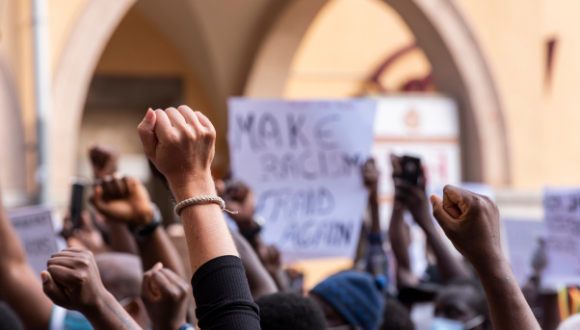Refugee Rights Clinic
As part of an appeal submitted by the clinic against the detention of Eritrean and Sudanese nationals for refusing to relocate to a third country under confidential agreements, the court ruled that individuals who refuse to leave cannot be imprisoned. [Link to the court ruling]. After the government amended the agreements to allow for forced deportation to a third country, the clinic filed a petition with the Supreme Court against the forced deportation of asylum seekers. These petitions ultimately led to the state's announcement in April 2018 that the deportation process was no longer being pursued, due to the withdrawal of the third countries from the agreement.
As part of an appeal submitted by the clinic against the Ministry of Interior’s refusal to recognize Eritreans who fled military service in Eritrea as refugees, the court rejected the state's position that desertion from military service in Eritrea does not constitute grounds for asylum. [Link to the court ruling]. The state's appeal of this ruling led to its decision to amend the criteria for reviewing asylum requests of Eritrean nationals in the context of military desertion and to reopen 3,000 applications that had previously been rejected based on the former criteria. [Link to the state's announcement].
A constitutional petition submitted by the Clinic resulted in the abolishment of the Deposit Law, according to which 20% of the asylum seekers’ salaries were deducted and deposited in the hands of the government until the asylum seeker leaves the country. The Deposit law, which was enacted in order to motivate asylum seekers to leave the country, was revoked by the Supreme Court and the funds were returned to the asylum seekers.
The Clinic filed a petition to the Supreme Court on behalf of ASSAF organization, against the Ministry of Welfare's policy not to provide asylum seekers with social services in municipal social service departments. Following the petition, the state set up an inter-ministerial team, which recommended the provision of social services to victims of domestic violence, homeless persons and people with disabilities. The ministry of Welfare adopted the committee's conclusions.
An appeal against the detention of asylum seekers refusing to be sent to a third country, and a motion against the deportation of asylum seekers against their will, both submitted by the Clinic, ended the mass incarceration of asylum seekers, and prevented their forced removal to third countries.
An appeal against the Ministry of Interior’s refusal to recognize Eritreans who fled military service in Eritrea as refugees, resulted in a ruling that rejected the state’s position. Following the ruling, the state decided to amend the criteria for examining asylum applications of Eritrean nationals who deserted from military service. This led to the reopening of 3,000 applications that had been previously rejected.
A petition filed by the Clinic, along with partner NGOs, led to the cancelation of a revision to the law that permitted the detention of asylum seekers for an unlimited period of time at Holot facility.
The Clinic and the Hotline for refugees and Migrants filed a petition against the separation policy implemented at schools in Eilat. In its response, the court determined that the respondents' policy is illegal and constitutes unlawful discrimination; The petition led to the annulment of the policy of separate education services in the city of Eilat.
A petition filed by the Clinic against the government’s decision to start fining asylum seekers’ employers, led the State to declare a non-enforcement arrangement under which employers of asylum seekers and people entitled to collective protection from deportation, would not be fined for unlawful employment.
A petition filed by the Clinic and the Hotline for refugees and migrants led to the repealing of the "hot return" policy. As part of the "hot return" policy, soldiers would return to Egypt refugees who had crossed the border to Israel from Sinai, without first checking whether they were asylum seekers facing dangers due to their return.


